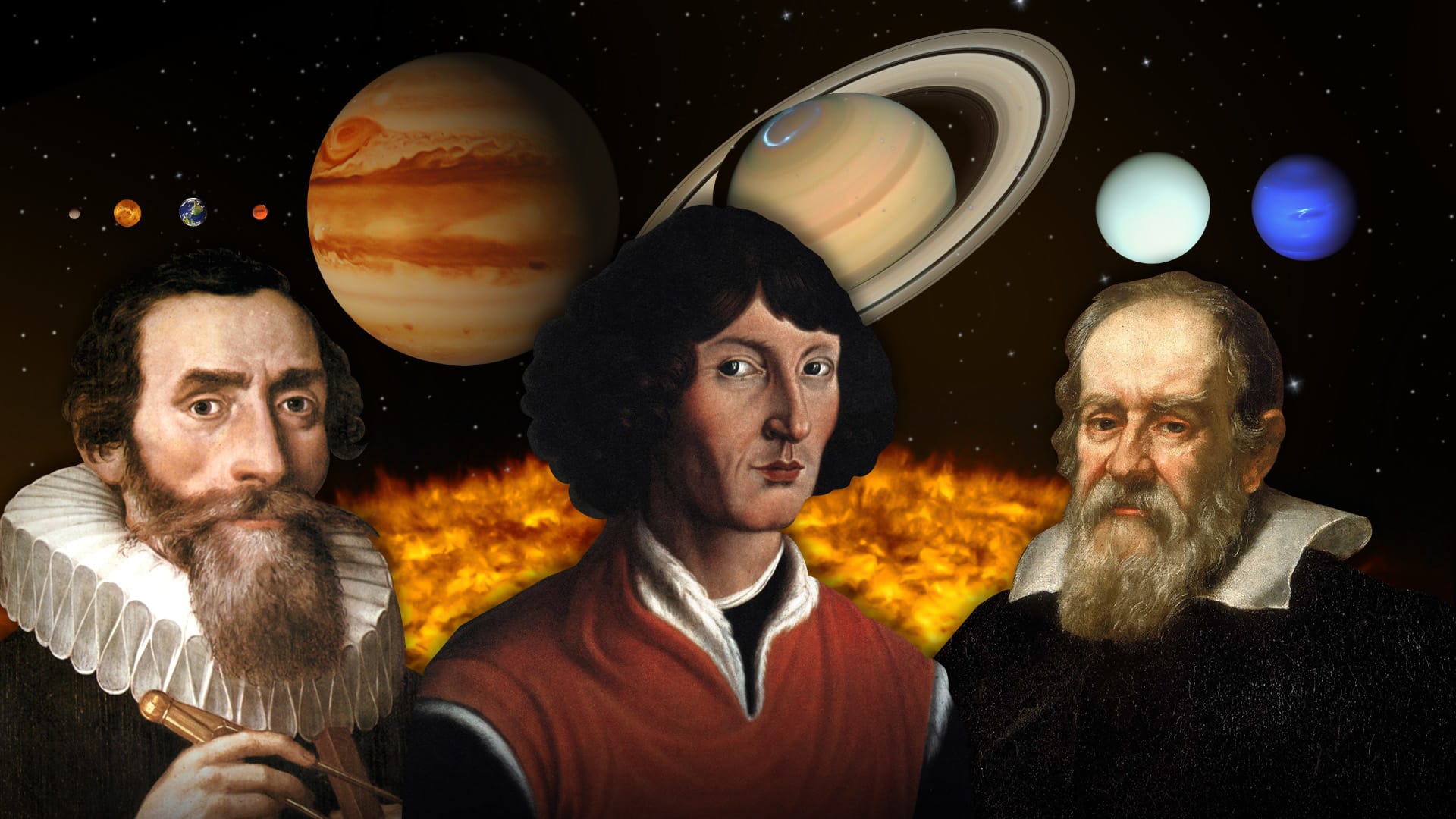Hipparchus: An ancient Greek astronomer and mathematician, is renowned for creating early star catalogs, discovering the precession of the equinoxes, advancing trigonometry, and contributing to the field of geography. His meticulous observations and calculations laid the groundwork for future astronomical understanding and mathematical developments.
Galileo Galilei: An Italian physicist, mathematician, and astronomer who played a crucial role in the scientific revolution. He made significant contributions to the development of telescopes, formulated the laws of motion, and supported the heliocentric model proposed by Copernicus.
Nicolaus Copernicus: A Renaissance mathematician and astronomer known for formulating the heliocentric model, placing the Sun, not the Earth, at the center of the universe. His work revolutionized the understanding of planetary movement.
Johannes Kepler: A German mathematician and astronomer who discovered the laws of planetary motion. He provided crucial mathematical explanations for planetary orbits, laying the groundwork for Newton's laws of motion.
René Descartes: A French philosopher, mathematician, and scientist known for his foundational work in both mathematics (Cartesian coordinates) and philosophy ("I think, therefore I am"). He made significant contributions to the development of modern philosophy and rationalism.
Sir Isaac Newton: An English mathematician, physicist, and astronomer who formulated the laws of motion and universal gravitation. His work on calculus and optics also made significant contributions to the scientific understanding of his time.
Charles Messier: A French astronomer known for creating the Messier Catalog, a list of astronomical objects (galaxies, nebulae, and star clusters) that are not comets. His catalog is still used by astronomers today.
Albert Einstein: A German-born theoretical physicist who developed the theory of relativity, including the famous equation E=mc², which describes the relationship between mass and energy. He made groundbreaking contributions to modern physics.
Stephen Hawking: A British theoretical physicist known for his work on black holes, quantum mechanics, and cosmology. Despite living with a severe disability, he made significant contributions to our understanding of the universe and wrote popular science books that made complex theories accessible to the public.
Carl Sagan: An American astronomer, astrophysicist, and cosmologist known for popularizing science through his books and television series like "Cosmos: A Personal Voyage." He advocated for scientific skepticism and the search for extraterrestrial life.
These astronomers, and many other outstanding scientists made significant contributions to the world, and our everyday life, that left an influence on forthcoming generations.




